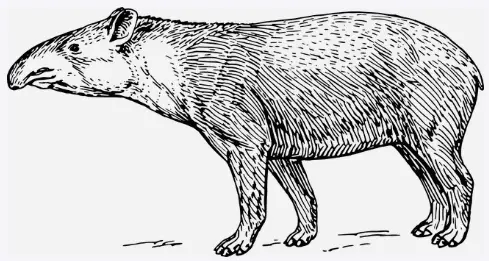
Portuguese activity, aimed at students in the seventh year of elementary school, explores the nouns. How about analyzing them in the text about the tapir? So, answer the proposed questions! In the segment “[…] a wide variety of sheets, fibers and fruits.”, are the underlined terms nouns, as they name beings, characterize beings or indicate circumstances? Shall we answer?
This Portuguese language activity is available for download in an editable Word template, ready to print in PDF and also the completed activity.
Download this Portuguese exercise at:
SCHOOL: DATE:
PROF: CLASS:
NAME:
Read:
The tapir is the largest terrestrial mammal in South America. Owner of an elongated snout, she has nocturnal habits and weighs 300 kg. Your diet is made up of a wide variety of leaves, fiber and fruits. This makes the tapir play a fundamental role in dispersing seeds in the forests and fields where it lives. Distributed throughout most of Brazil, the species has become rare due to habitat loss (through deforestation and fires, for example), hunting and roadkill.
Available in:

Question 1 - In the segment “[…] a wide variety of sheets, fibers and fruits.”, the underlined terms are nouns, as:
( ) name beings.
( ) characterize beings.
( ) indicate circumstances.
Question 2 - The noun “tair” designates an animal and has only one gender. In this context, it is called:
( ) epicene.
( ) super common.
( ) common of two genders.
Question 3 - Write the plural of the following nouns:
a) "paper":
b) "fundamental":
c) "dispersion":
Question 4 – In the text, there are two proper nouns. Locate them:
Question 5 - The noun "species" is accented because it is paroxytone:
( ) ending in “e”.
( ) ending in a vowel.
( ) ending in diphthong.
Question 6 – In the passage “[…] the species has become rare due to […] hunting and being run over.”, is the noun “hunting” concrete or abstract? Explain:
By Denyse Lage Fonseca
Graduated in Languages and specialist in distance education.
 report this ad
report this ad